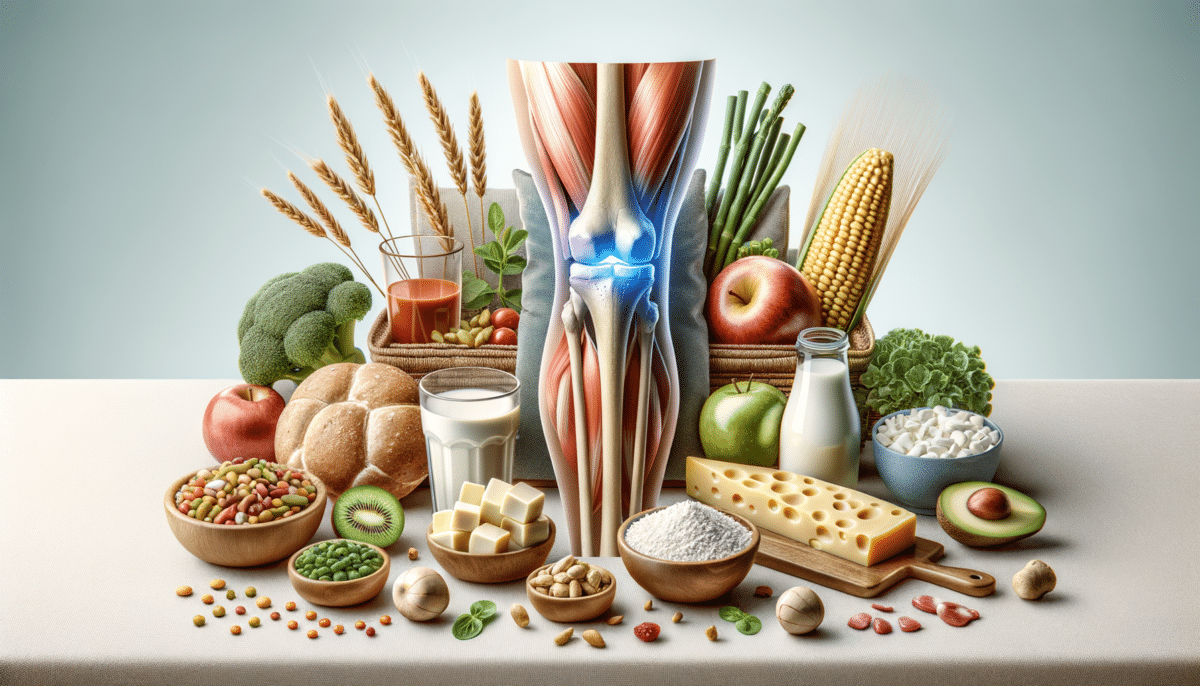The Role of Nutrition in Joint Health
Joints are the connectors of our skeletal structure, enabling movement and flexibility. The health of these joints can significantly impact our quality of life, particularly as we age. Nutrition plays a crucial role in maintaining joint health, providing the necessary building blocks for cartilage repair and reducing inflammation. Certain nutrients are especially beneficial, including omega-3 fatty acids, antioxidants, and vitamins such as C and D. By incorporating the right foods into our diet, we can enhance joint function and potentially alleviate discomfort associated with conditions like arthritis.
Omega-3 Rich Foods
Omega-3 fatty acids are renowned for their anti-inflammatory properties, which can be particularly beneficial for joint health. Foods rich in omega-3s include fatty fish such as salmon, mackerel, and sardines. These fish not only support joint lubrication but also contribute to overall cardiovascular health. For those who prefer plant-based options, chia seeds, flaxseeds, and walnuts are excellent sources of omega-3s. Including these foods in your diet can help reduce joint stiffness and pain, promoting greater mobility and comfort.
Antioxidant-Packed Fruits and Vegetables
Antioxidants are powerful compounds that combat oxidative stress and inflammation, two factors that can aggravate joint issues. Berries, such as blueberries and strawberries, are rich in antioxidants like anthocyanins, which have been shown to reduce inflammation. Leafy greens, such as spinach and kale, are also packed with antioxidants and essential vitamins that support joint health. By consuming a variety of colorful fruits and vegetables, you can provide your body with the tools it needs to protect and repair joint tissues.
The Importance of Vitamin D and Calcium
Vitamin D and calcium are vital for maintaining strong bones and joints. Vitamin D helps the body absorb calcium, which is essential for bone density and joint support. Dairy products, fortified plant milks, and green leafy vegetables are excellent sources of calcium. Sun exposure is a natural way to boost vitamin D levels, but it can also be obtained from foods such as fatty fish and fortified cereals. Ensuring adequate intake of these nutrients can help prevent joint deterioration and support overall skeletal health.
Incorporating Turmeric and Ginger
Turmeric and ginger are spices with potent anti-inflammatory properties that have been used in traditional medicine for centuries. Curcumin, the active compound in turmeric, has been shown to reduce inflammation and pain in joints. Ginger, similarly, contains compounds that inhibit inflammatory pathways in the body. Adding these spices to your meals can enhance flavor while providing joint-supporting benefits. Whether used in teas, curries, or smoothies, turmeric and ginger offer a natural way to promote joint health.
Conclusion: Nourishing Your Joints
Supporting joint health through diet is a proactive approach to maintaining mobility and comfort as we age. By focusing on foods rich in omega-3s, antioxidants, vitamin D, calcium, and anti-inflammatory compounds, we can provide our joints with the nutrients they need to function optimally. Incorporating these foods into your daily meals not only benefits joint health but also contributes to overall well-being. Remember, a balanced diet, combined with regular physical activity, is key to sustaining healthy joints and an active lifestyle.
